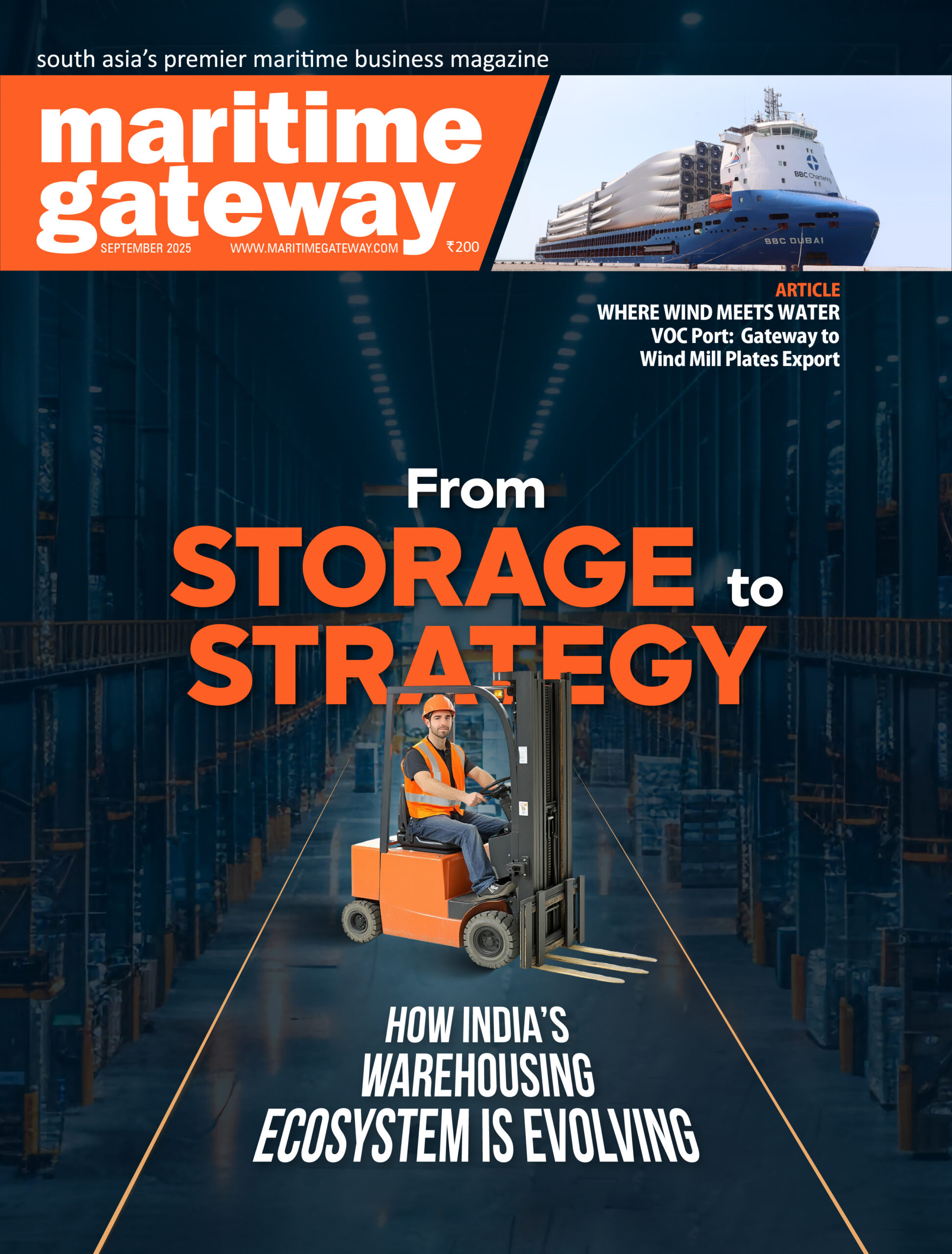As the company celebrates its 100th anniversary, it reflects a remarkable journey — from the bustling docks of pre-independence Karachi to a globally connected logistics enterprise rooted deeply in Gujarat and the western coast of India.
The seeds of the company were sown in 1923, when an application was filed for a customs broking license. By 1925, Velji Dosabhai had formally established the business in Karachi, then a key trade gateway for Hindustan. Although hailing from Gujarat, Karachi’s prominence as a trading port made it a natural starting point.
However, the Partition of India in 1947 forced the family to leave behind their home, office, and entire infrastructure. They relocated to India, briefly staying in their native town before restarting operations in Bombay (now Mumbai). With nothing more than a reinstated license and sheer determination, Veljibhai Dosabhai resumed business–writing shipping bills near the Yellow Gate under a tarpaulin.
The company witnessed its initial phase of substantial growth under the stewardship of Devchand Velji, representing the second generation of leadership until 1971.
Subsequently, the transition to third-generation management signalled the beginning of a new era in the organisation’s development and strategic direction.
Third generation: Diversification & global reach
Natvarlal D. Popat (CMD) represents 3rd Generation and serves as the Chairman and Managing Director of Velji Dosabhai and Sons Private Limited. He’s also been associated with several other companies, including Velji Shipping and Transport, Trishul Transport, and Prashant Warehousing. Under his leadership, the company expanded its services to include customised clearing and forwarding, freight brokerage, and global logistics solutions. He also played a pivotal role in establishing international offices in Mombasa, Kenya and London, UK, signalling a bold move into global markets.
In the early 1980s. A pivotal milestone came in 1982 when the company opened its first branch in Kandla. This expansion was not just geographical; it also marked the beginning of the company’s own transport unit. The move was born out of necessity, as trucks were unavailable to move bulk cargo. Starting with a second-hand tempo, this division has now grown into a fleet of over 180+ trucks and trailers – well maintained self-owned fleet, catering primarily to factory stuffing and last-mile connectivity.
Fourth generation: Embracing technology and scaling up
In 2000, Prashant Popat, representing the fourth generation, joined the business. Although initially drawn to electronics and automobiles, a sense of familial responsibility and commitment to legacy led him to the family trade.
Armed with a Rule 9 Customs qualification, he entered a business that was on the cusp of digital transformation.
His tenure saw the company adopt early EDI systems, collaborate with leading shipping lines such as Maersk, and automate key documentation processes. New branches were launched across Gujarat–in Jamnagar, Rajkot, Baroda, and Ahmedabad–and into central India with Indore. The company also expanded into North India, establishing offices in New Delhi, Ludhiana, and Jalandhar, serving key clients in those regions.
Despite being deeply rooted in Gujarat, the firm was not hesitant to venture abroad. Since 2008, international offices have been established in the United Kingdom, Kenya (2010), and Tanzania (2013), extending its global footprint.
Today: Focused, ethical, and specialised
With a team of over 300 professionals, VDSPL has established itself as a trusted expert in export logistics. The company serves a diverse array of industries, including engineering goods, pharmaceuticals, auto components, hand tools, and specialised scouting categories such as agricultural products, food & beverages, and sporting goods. In a strategic move that underscores its commitment to excellence, VDSPL has deliberately steered clear of the garments and import sectors—favouring focused specialisation over broad diversification, and prioritizing quality over quantity.
Its key export markets span Europe, the UK, the Gulf, Southeast Asia, and Africa. Despite occasional disruptions, including those caused by the Red Sea crisis, the company’s agility and customer-first approach have helped it stay resilient and responsive.
Challenges in a changing world
As Prashant candidly shares, the business model has undergone a dramatic shift. Where logistics was once deeply rooted in relationships and loyalty, the sector is now increasingly transactional and price-sensitive. Newer generations –both clients and employees–often prioritise commercial aspects over emotional bonds.
Another challenge is the lack of integrated data systems. The absence of a unified logistics dashboard forces businesses to rely on fragmented data from shipping lines, CFS operators, terminals, and other players. This fragmentation hampers real-time decision-making and reduces operational efficiency.
The road ahead: Ethics, expansion, and evolution
As the company enters its second century, its founding values of trust, ethics, and transparency remain firmly intact. The firm continues to serve only legitimate and compliant businesses–a principle that has guided it through every decade of growth.
Looking forward, Prashant envisions VDSPL becoming the preferred logistics service provider for India’s EXIM trade. While the future of traditional customs broking may shift due to automation and digital platforms, he remains optimistic. He believes the company’s core strengths– personalised service, reliability, and client trust–will ensure continued relevance.
Succession planning is already in motion, with the next generation expressing interest in joining. But as Prashant notes, the industry’s future will depend on how well it adapts to automation, digitalisation, and evolving client expectations.
A legacy that moves forward
From handwritten shipping bills under a tarpaulin to integrated export logistics across continents, Velji Dosabhai & Sons embodies the spirit of Indian entrepreneurship–steadfast, adaptive, and guided by values. As it steps into its second century, the firm stands tall, not just as a logistics company, but as a custodian of legacy and a beacon of ethical business in India’s maritime landscape.








